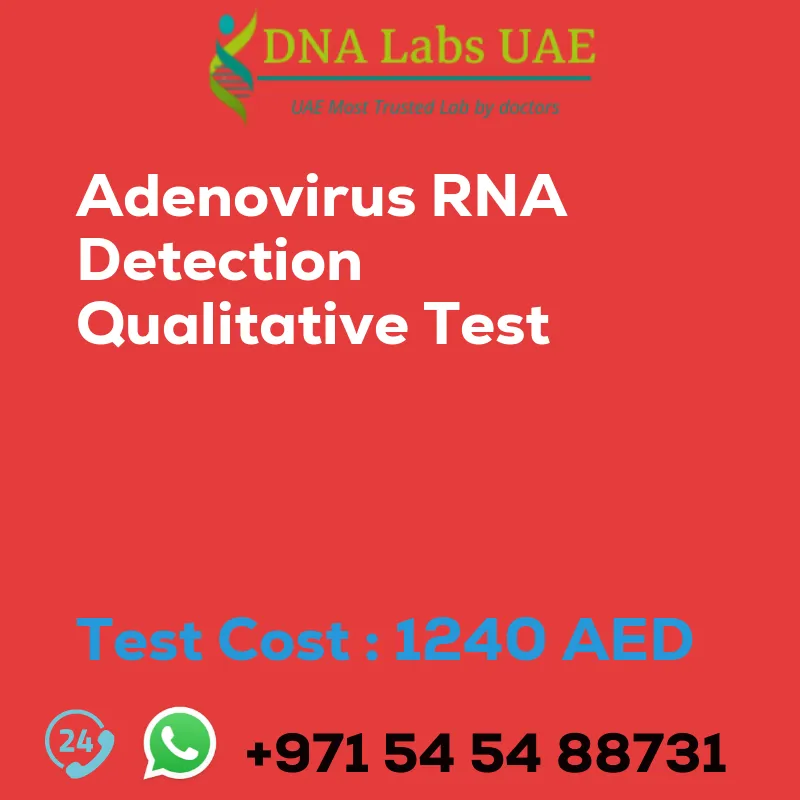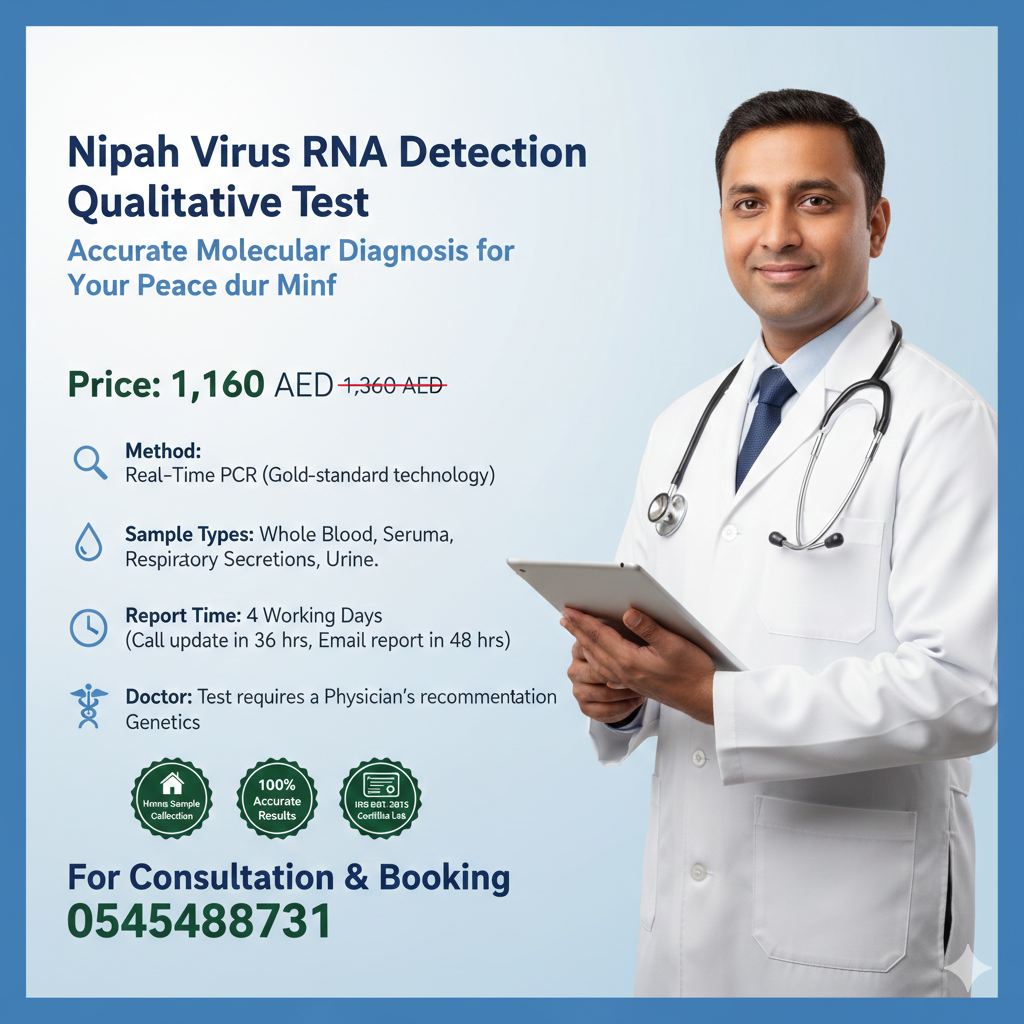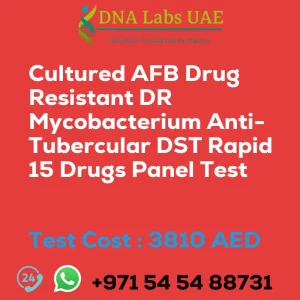Adenovirus RNA Detection Qualitative Test
Cost: AED 1240.0
Test Details
The Adenovirus RNA Detection Qualitative Test is a diagnostic tool used to detect the presence of adenovirus RNA in a patient’s sample. Adenoviruses are a common cause of respiratory infections, including the common cold, conjunctivitis, and gastroenteritis.
The test involves collecting a sample from the patient, such as a nasal swab or throat swab, and extracting the RNA from the sample. The RNA is then converted into complementary DNA (cDNA) using reverse transcription. The cDNA is amplified using a technique called polymerase chain reaction (PCR), which allows for the detection of even small amounts of viral RNA.
The PCR reaction uses specific primers that target regions of the adenovirus genome. If the adenovirus RNA is present in the patient’s sample, the primers will bind to the viral RNA and initiate the amplification process. This results in the production of many copies of the viral DNA, which can be detected using fluorescent probes or other methods.
The qualitative test provides a simple “yes” or “no” answer regarding the presence of adenovirus RNA in the patient’s sample. A positive result indicates that the patient is infected with adenovirus, while a negative result suggests that adenovirus RNA is not present. This information can help healthcare providers make informed decisions regarding patient management and treatment options.
It is important to note that the Adenovirus RNA Detection Qualitative Test is a laboratory-based test and requires specialized equipment and trained personnel to perform. It is typically conducted in hospitals, clinics, or reference laboratories.
Components
- Sample Condition: Bronchial Swab, Bronchial Lavage, Sputum, Nasopharyngeal (NP) aspirates and swabs in viral transport medium, or lung tissues, feces, tissues, etc.
Report Delivery
- 4th Working Day
- Email: 48 hours
- On phone: 36 hours
Method
- Real Time PCR
Test Type
- Viral
Doctor
- Physician
Test Department
- Genetics
Pre Test Information
Patients need to sign a consent document and bring any clinical history for the Adenovirus RNA Detection Qualitative Test.
| Test Name | Adenovirus RNA Detection Qualitative Test |
|---|---|
| Components | |
| Price | 1240.0 AED |
| Sample Condition | Bronchial Swab, Bronchial Lavage, Sputum, Nasopharyngeal (NP) aspirates and swabs in viral transport medium, or lung tissues, feaces, tissuesETC. |
| Report Delivery | 4th Working Day Email : 48 hours.On phone : 36 hours |
| Method | Real Time PCR |
| Test type | Viral |
| Doctor | Physician |
| Test Department: | Genetics |
| Pre Test Information | Need to sign Consent document and bring any clinical history of patient forAdenovirus (RNA Detection) QualitativeTest |
| Test Details |
The Adenovirus (RNA Detection) Qualitative Test is a diagnostic tool used to detect the presence of adenovirus RNA in a patient’s sample. Adenoviruses are a common cause of respiratory infections, including the common cold, as well as other illnesses such as conjunctivitis and gastroenteritis. The test involves collecting a sample from the patient, usually a nasal swab or throat swab, and extracting the RNA from the sample. The RNA is then converted into complementary DNA (cDNA) using reverse transcription. The cDNA is then amplified using a technique called polymerase chain reaction (PCR), which allows for the detection of even small amounts of viral RNA. The PCR reaction uses specific primers that target regions of the adenovirus genome. If the adenovirus RNA is present in the patient’s sample, the primers will bind to the viral RNA and initiate the amplification process. This results in the production of many copies of the viral DNA, which can be detected using fluorescent probes or other methods. The qualitative test provides a simple “yes” or “no” answer regarding the presence of adenovirus RNA in the patient’s sample. A positive result indicates that the patient is infected with adenovirus, while a negative result suggests that adenovirus RNA is not present. This information can help healthcare providers make informed decisions regarding patient management and treatment options. It is important to note that the Adenovirus (RNA Detection) Qualitative Test is a laboratory-based test and requires specialized equipment and trained personnel to perform. It is typically conducted in hospitals, clinics, or reference laboratories. |








